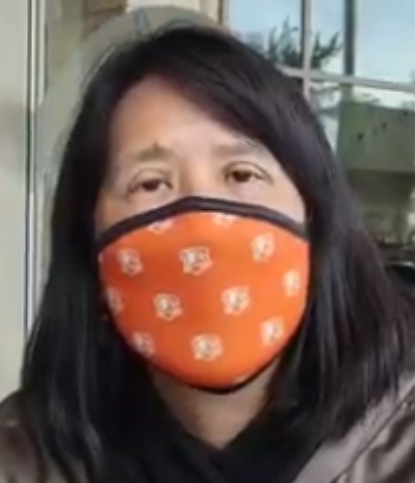
Life in the Oilfields – A Teacher’s Perspective
Lorraine Spickermann
Lecturer - University of Texas - Permian Basin
We have students who stop out and don’t return, and I don’t know how to get them back to finish their degrees to become teachers. – Lorraine Spickermann
The following is an excerpt of interviews by Michael Lewis of Environment Texas with Lorraine Spickermann, a lecturer at the University of Texas – Permian Basin. The questions and responses have been edited for brevity and clarity.
This is part of our “Stories from the Oilfields” series of collected interviews from residents of the oil producing areas of Texas and experts on the impacts of the fossil fuel industry. See our full series HERE.
Environment Texas Lorraine Spickermann Interview Highlights
Environment Texas: How long have you lived in the Permian?
Lorraine Spickermann: I’ve lived here 22 years.
Environment Texas: What have you seen or personally experienced from the fossil fuel and methane industry here?
Lorraine Spickermann: So mostly the fossil fuel industry, we obviously provide a lot of services here. So at the university we see both the highs when oil is doing very well and we’ve seen the low when it doesn’t do so well. So we’re seeing the ups and downs and we see that reflected in our student population. When oil is doing very well, there’s a need for a lot of drivers, workers, so our students will leave campus and work in the industry and our population goes down. And when it is not doing so well, we will have students return to college.
Environment Texas: So the population of the college drops during a boom session and then during the bust students will re enroll. What’s the long term impact of that kind of enroll, drop and re-enroll?
Lorraine Spickermann: They’ll leave school because private industry pays them more, and they can do that instead of finishing a degree and becoming a teacher because the teaching salary is lower than private industry. So that makes me sad, because that not only impacts that student, but it impacts our future generations of students who will not have a qualified, competent teacher to help to grow the Permian Basin. We have students who stop out and don’t return, and I don’t know how to get them back to finish their degrees to become teachers. The Permian Basin has been short of teachers for many, many years.
Something new to me when I first moved here is you look out onto the horizon sometimes you can see there’s something about fire on there. Well it’s not, it’s a flare off. That was something very new to me. We had an exchange student visiting from China and one day she said, oh, I love the smell. It’s an awful smell. Well, it’s a smell of fuel, the burnout, it’s the smell of whatever we put into the chemicals to make it so you can identify it. And to her that’s a beautiful smell and I’m thinking that’s an industrial pollutant smell and other days we don’t smell it but sometimes you do smell it depending which way the wind is blowing. So, to me, that’s something that I don’t personally enjoy, but her from where she lives in industrial town, that’s a normal smell. I thought, that’s interesting. So she was only here for a semester, but during that semester, she was homesick. But anytime it smelled of petroleum or petroleum products, that reminded her of home, made her happy, gave me that. It made her happy.
Environment Texas: What else would you like to tell people about living out here recently?
Lorraine Spickermann: We have earthquakes. So when we first lived here, I’d say that at least the first 10 years, maybe 15 years, we never experienced earthquakes. More recently, we do have very small one, two, and four, and they’re centered north of town or northeast of town. Okay, what’s north and northeast of town? Field of subjects. Okay, so that’s where the fracking and the extraction is actually happening, and it just happens to coincide with where the earthquakes are centered.

